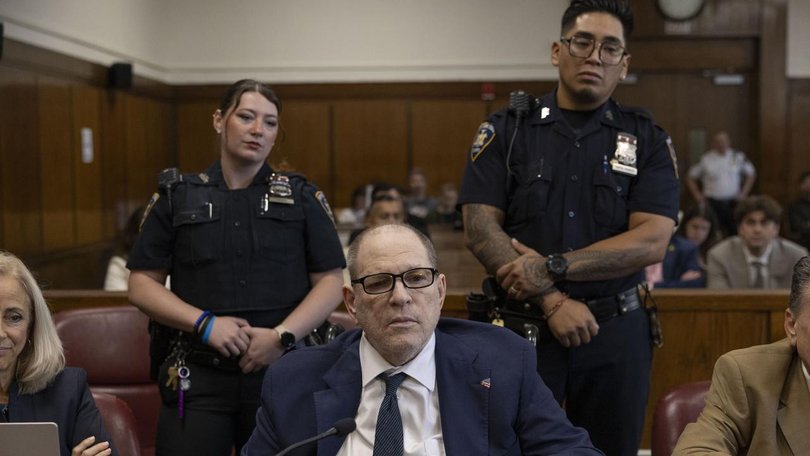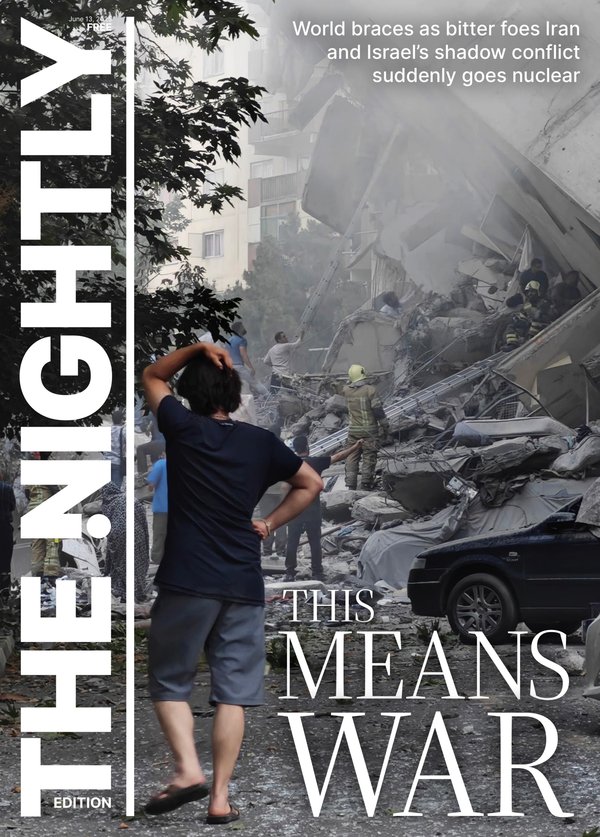Harvey Weinstein: Judge declares mistrial at rape trial after jury could not reach verdict on third count

The judge overseeing Harvey Weinstein’s criminal trial in Manhattan has declared a mistrial on a rape charge against the former Hollywood movie mogul, after one of the jurors refused to continue deliberations.
The mistrial came a day after the jury convicted Weinstein on a separate sex abuse charge. It also acquitted him on a different sex abuse charge.
Weinstein, once one of the most powerful figures in Hollywood, faced a retrial that began on April 23 after a New York state appeals court last year overturned his 2020 conviction. He was accused by prosecutors in this case of raping an aspiring actress and assaulting two other women.
Sign up to The Nightly's newsletters.
Get the first look at the digital newspaper, curated daily stories and breaking headlines delivered to your inbox.
By continuing you agree to our Terms and Privacy Policy.Weinstein, 73, pleaded not guilty and has denied assaulting anyone or having non-consensual sex.
The jury found Weinstein guilty on one of the three counts he faced, which stemmed from his alleged assault of former production assistant Miriam (Mimi) Haley in 2006. The jury found Weinstein not guilty of a charge stemming from his alleged assault of Kaja Sokola in 2002 when she was a 16-year-old aspiring actress.
Supreme Court Justice Curtis Farber declared a mistrial after the judge said the jury could not reach a verdict on a third count, which charged him with raping aspiring actress Jessica Mann in 2013.
Weinstein faces up to 25 years in prison when he is sentenced. He has separately been sentenced to 16 years in prison following a rape conviction in California.
In a startling development on Wednesday, the jury foreperson told Justice Farber that other members of the panel were shouting at him and threatening him for refusing to change his vote on the rape count.
Justice Farber sent jurors home for the day to give them time to cool down and instructed the foreperson to arrive in court separately on Thursday.
In closing arguments on June 3, the prosecution told the 12 jurors that the evidence showed how Weinstein used his power and influence to trap and abuse women.
The defence countered that the accusers lied on the witness stand out of spite after their consensual sexual encounters with the Oscar-winning producer failed to result in Hollywood stardom.
A jury found Weinstein guilty in February 2020 of raping Ms Mann and sexually assaulting MS Haley. Ms Sokola’s allegation was not part of that case.
The conviction was a milestone for the #MeToo movement, which encouraged women to come forward with allegations of sexual misconduct by powerful men. But the New York Court of Appeals, the state’s highest court, threw out that conviction in April 2024. It said the trial judge erred by letting women testify that Weinstein had assaulted them, though their accusations were not the basis of the criminal charges.
Though the conviction was thrown out, Weinstein, who has had a litany of health problems in recent years and attended the retrial in a wheelchair, has remained behind bars because of his California conviction. He is appealing that verdict.
More than 100 women, including famous actresses, have accused Weinstein of misconduct.
